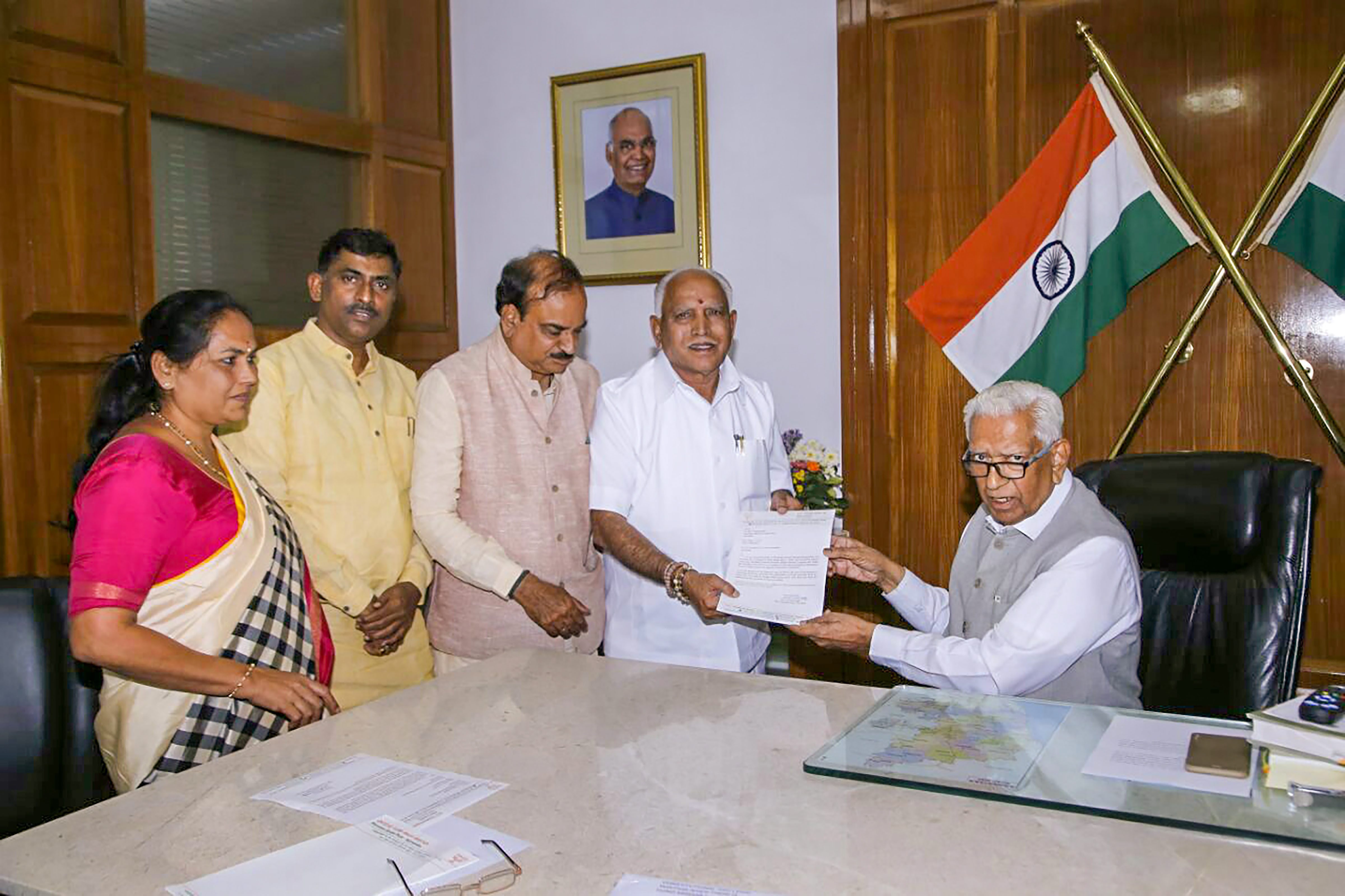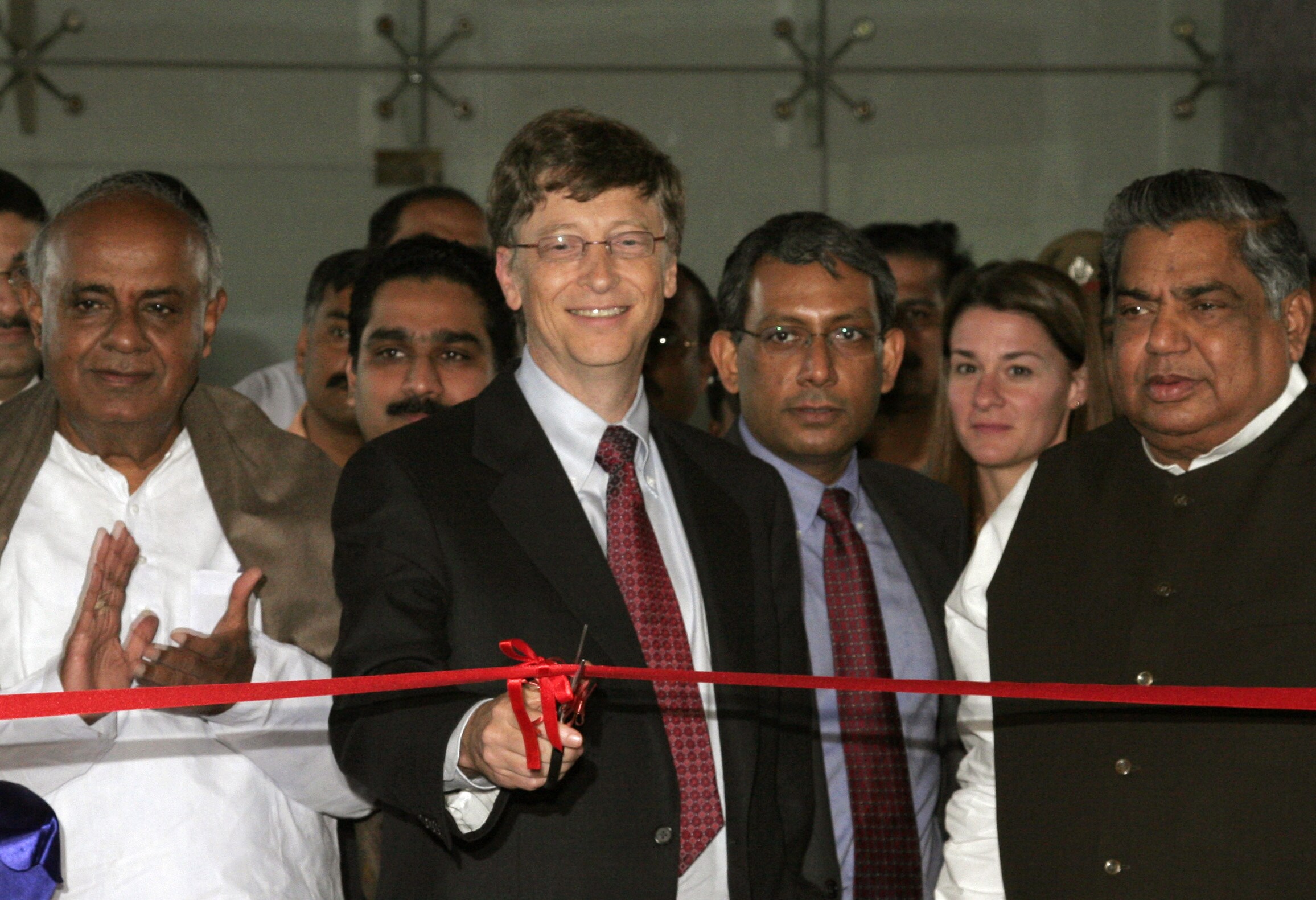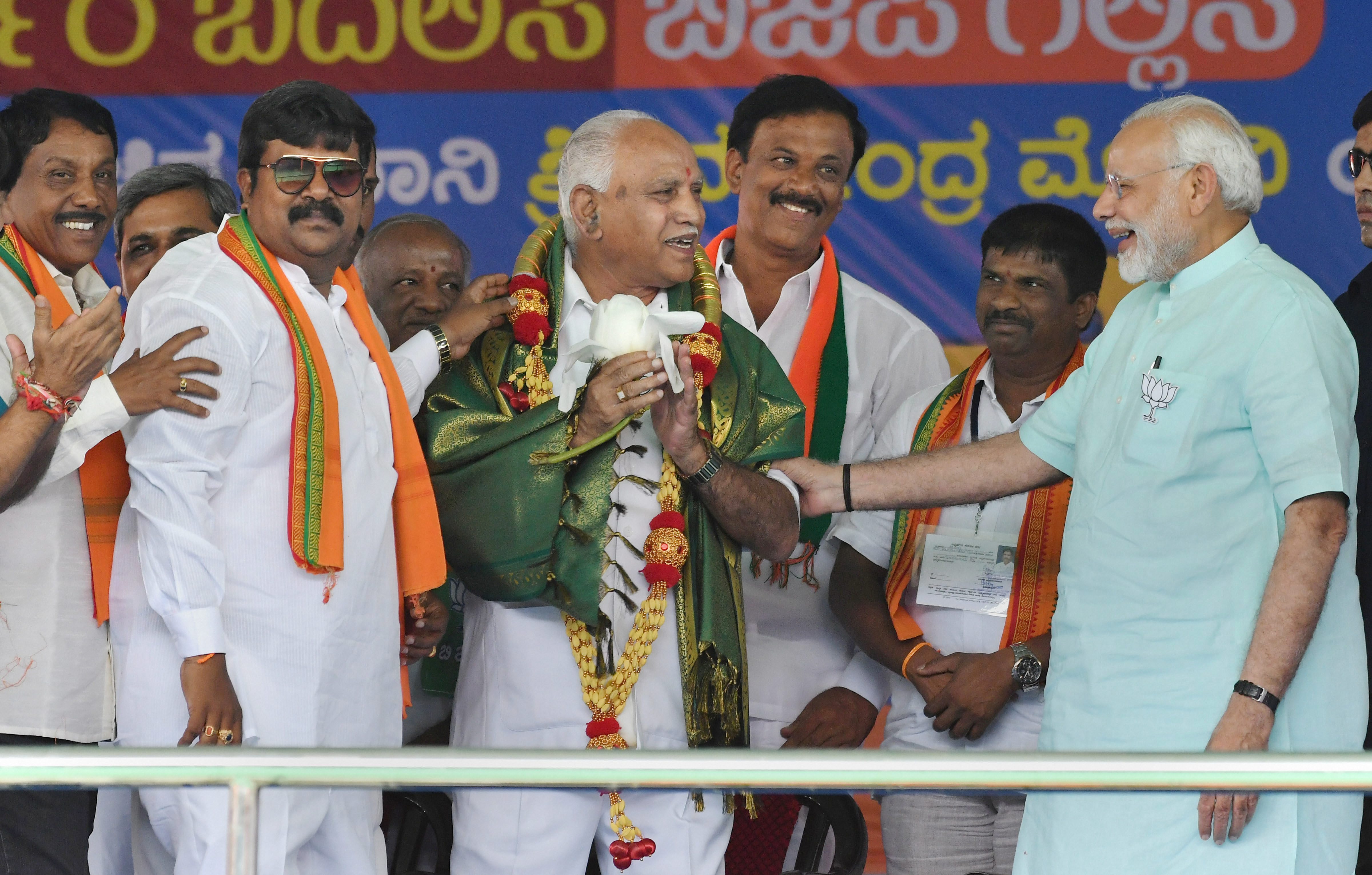
Governor Vajubhai Vala is in an unenviable position. Having to decide whether to invite the Bharatiya Janata Party or the Congress and Janata Dal (Secular) combine to form the next government in Karnataka leaves him in an odd position – both moves are legally justified but neither is obviously right or wrong, and could potentially be both.
To understand his position, first the mathematics. The BJP is the single largest party having won 104 seats in the 225-member Karnataka Legislative Assembly (elections to two seats have been postponed, and one seat is filled by nomination). The Congress and the JD(S), who had no pre-poll understanding, have 118 seats between them (including two independents and the BSP's one seat). The dilemma for the Governor is this: should he call the single-largest party (the BJP) or the single-largest grouping (Congress+JDS+Independents)?
The Constitution provides no guidance in this matter.
No article in the Constitution clearly and unequivocally guides his choice in such a situation.
Had the BJP crossed the 113 mark or if the Congress and JD(S) had been a pre-poll alliance, his task would have been simple. There is nothing in the text of the Constitution itself which tells him what to do when faced with a tricky election result such as this.
The Supreme Court's rulings are also frustratingly ambiguous. The landmark judgement in SR Bommai v Union of India did not concern itself too much which what happens immediately after an election with a slightly fractured verdict. Only paragraph 396 of the judgement even talks about such a situation and it says,
“396. We make it clear that what we have said above is confined to a situation where the incumbent Chief Minister is alleged to have lost the majority support or the confidence of the House. It is not relevant to a situation arising after a general election where the Governor has to invite the leader of the party commanding majority in the House or the single largest party/group to form the Government. We need express no opinion regarding such a situation.”
If one were to go by this, the governor would be equally justified in calling either the BJP or the Congress/JD(S) group to provide its majority on the floor of the house.

Even in the recent order in the Goa Assembly case, the Supreme Court did not decide whether the governor was justified in calling the BJP and allies to form the government when the Congress was the single largest party. All that was said was that the alliance led by Manohar Parrikar would have to prove its majority on the floor of the state legislative assembly on a given date.
As it stands, there is no definitive finding of law which tells the governor how to choose between a single largest party and the largest post-poll grouping.
Historical precedent and practice are also frustratingly mixed. We have three recent instances where, with such a fractured verdict resulted in the largest post-poll grouping being called to prove its majority on the floor of the house (as the BJP did in Goa, Meghalaya and Manipur). Yet, we have, in the past, seen that sometimes the single party has also been called when it did not have the numbers (Recall Vajpayee in 1996).
In Karnataka itself, the last two times such a fractured verdict happened, Governors then adopted different courses of action. In 2004, the Governor invited the Congress and JD(S) grouping to form the government, even though the BJP was the single largest party.

In 2008, the BJP, as the single largest party, was invited to form the government even though it did not cross the half-way mark on its own (though it did get the support of independents).
But wondering what the Governor should do in this situation is a bit of a red herring.
In a parliamentary democracy, the government only lasts as long as it enjoys the support of the legislature. The support of the legislature is an objective fact – whoever can win a vote of confidence or ensure that the budget is passed obviously enjoys the support of the legislature. This can and must be determined only on the floor of the house and not by the governor or anyone else for that matter. So, irrespective of who the Governor chooses to call to form the government, the truth of their support will come out shortly in any case.
That is what is supposed to happen. The reality, as always is far messier. The real anxiety that underwrites concerns over whom the Governor calls first is based on the belief that despite the provisions of the Tenth Schedule of the Constitution, unprincipled defections will be used to support the party which is first called to prove its majority.
Karnataka has experience of this – the infamous ‘Operation Kamala' of 2008 which resulted in a range of MLAs defecting from their parties and joining the slightly-short-of-majority BJP government led by BS Yeddyurappa.

But wouldn't the Tenth Schedule of the Constitution be attracted to disqualify the defecting MLAs? Theoretically, yes. But, as the recent example of Telangana and Andhra Pradesh show, parties in power have found a way around the Tenth Schedule's disqualification provisions in order to protect defectors.
Instead of deciding whether an MLA should be disqualified for defection, the Speaker of the House simply refuses to take a decision and allows the MLA to enjoy the benefits of such a defection.
Attempts to challenge this in court have not gone anywhere as the question of whether the High Court or the Supreme Court can direct the Speaker to take a decision are pending arguments before a Constitution bench.
In trying to create a working parliamentary democracy in India, the Constitution vested the Governor and Speaker with enormous discretionary powers with the belief that these posts will be filled by people committed to democracy and principles. The history of India shows that the Constitution's framers hopes have been repeatedly belied. It is likely that even in the context of Karnataka, they will be belied once again.
Alok Prasanna Kumar is an advocate based in Bengaluru, an Executive Committee Member of the Campaign for Judicial Accountability and Reforms and was a Senior Resident Fellow at the Vidhi Centre for Legal Policy.
The views expressed here are those of the author's and do not necessarily represent the views of BloombergQuint or its editorial team.
Essential Business Intelligence, Continuous LIVE TV, Sharp Market Insights, Practical Personal Finance Advice and Latest Stories — On NDTV Profit.























